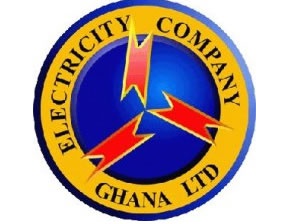 ECG logo
ECG logo
Government has appointed the Millennium Development Authority (MiDA) to lead in the privatisation of the Electricity Company of Ghana (ECG).
MiDA, in accordance with the privatisation process, intends to conduct an international competitive tender to select a company or consortium of companies with experience in the management, operation of, and investments in electricity distribution system, with the objective of selecting a preferred bidder before the end of 2016.
The process has, however, raised anxiety among the staff of ECG who fear losing their jobs.
In view of that, MiDA has advertised inviting local and international companies to take over the operations of ECG.
An American company is likely to be handed the ECG assets for the next 20 to 30 years in order for government to access the US Millennium Challenge Account of $500 million.
Government has undertaken to privatise ECG as part of a condition to access the second compact of the MCA worth about $500 million.
The privatisation, according to the government, would make ECG more efficient by improving its operations to reduce commercial and technical losses.
The Government of Ghana signed the Ghana Power Compact with the US Millennium Challenge Corporation (MCC), an independent United States government foreign aid agency, on August 5, 2014.
The Compact provides Ghana with a grant of $498,200,000 to improve the power sector in exchange for ECG assets.
The major element under the Compact is the Electricity Company of Ghana Financial and Operational Turnaround Project, which is designed to transform ECG into an efficient institution through Private Sector Participation (PSP).
About $300 million of the MCC grant is being invested in ECG; the Government of Ghana is committing at least $37.4 million.
Ing. Owura Sarfo, Chief Executive Officer (CEO) of MiDA, says the power crisis which has had a debilitating effect on the economy would be a thing of the past when the Ghana Compact Two programme comes into force by 2017, even though government says dumsor will be fixed by the end of 2015.
According to him, the interventions that would be initiated under the Compact Two programme would play a critical role in banishing dumsor from the power landscape of Ghana in the medium term and ensure that it does not rear its ugly head again in the future.
Ing. Sarfo told journalists in Accra yesterday to update all stakeholders and the general public of the progress made so far and what remained to be done in order to commence the implementation of the Ghana Compact Two programme.
He said the private partner would help transform ECG in terms of technology and efficiency in power distribution to become a stronger company able to meet the current and future needs of Ghanaian families and businesses.
“This is because it would, in the medium term, address the root cause of the power crisis which has had such a debilitating effect on our economy.
“The critical need for reliable and available power in the development of any country cannot be overemphasised. Power is so vital to the economy and it is critical that we’ll address any bottlenecks associated with it,” he said.